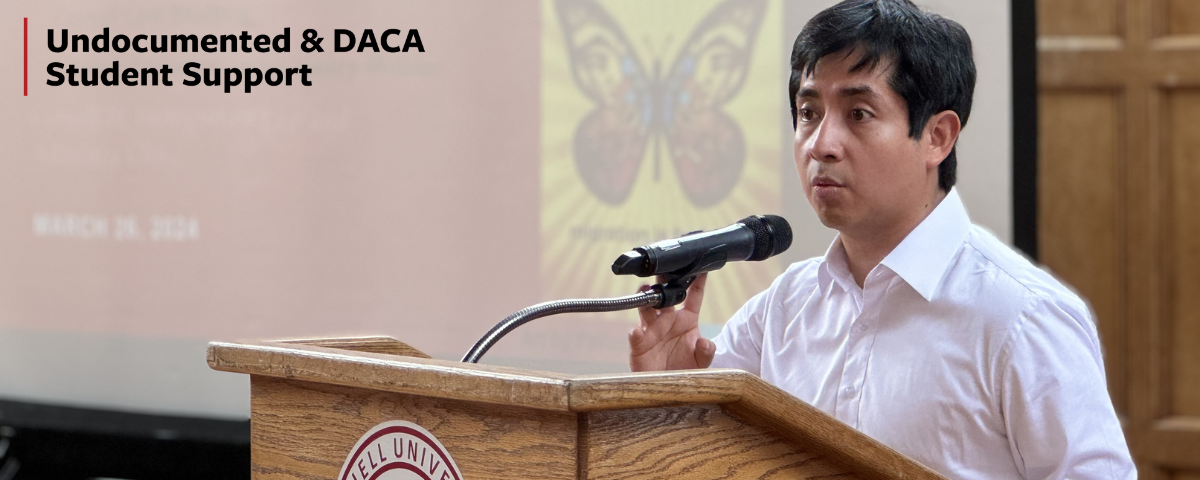Undocumented & DACA Support
Welcome to Undocumented/DACA Student Support, a division of First-Generation & Low-Income (FGLI) Student Support! This area promotes awareness, identity exploration, community engagement, and self-advocacy. The office also facilitates educational resources and collaborates with community partners to help support undocumented and DACA students at Cornell. Because students with either status are often first-generation and/or low-income, Undocumented/DACA Student Support is part of the FGLI office.
What is the difference between undocumented and DACA?
Undocumented individuals reside in the United States but have not been granted legal residency by the U.S. government. Deferred Action for Childhood Arrivals (DACA) refers to a United States immigration policy that grants eligible individuals a renewable two-year work permit and relief from deportation.
What is Cornell’s approach to undocumented and DACA students?
Undergraduate students with and without DACA are considered domestic students by Cornell University for the purposes of admission. As of Fall 2021, candidates for admission who attended and are expecting to graduate from a U.S. high school despite lacking citizenship, residency, or visa status are evaluated as part of Cornell’s need-blind admission review alongside their U.S. peers. All admitted U.S. undergraduates, including students lacking U.S. citizenship, residency, or visa status, are eligible for a Cornell financial aid offer that meets full demonstrated financial need.
Purpose
Our work is grounded in a holistic, intersectional approach to foster an educational environment for undocumented and DACA students to succeed and thrive at Cornell. As a unit within the Dean of Students’ Center for Student Equity, Empowerment, and Belonging, we promote an inclusive and transformational educational experience for Undocumented/DACA students by empowering them to navigate and access resources to alleviate institutional barriers.

